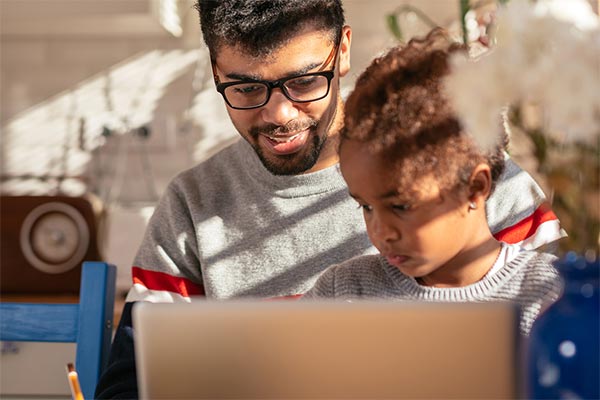Brave New World: Helping students with digital literacy at home
September 19, 2017 - 5 minutes read By Sean Sallis-Lyon
By Sean Sallis-Lyon
The internet is a vast, enthralling, and sometimes scary place. There are wonderful areas where creativity flourishes, and dark places where negativity runs rampant. Back in September 2014, West Vancouver Schools instituted the Bring Your Own Device policy, further cementing the internet into our lives, and the lives of our children.
At school, devices can be monitored, and screen time can be regulated. But what happens when kids go home? With help from Jesse Miller and Sean Nosek, we’ve put together a “back to school” guide for parents to help their children navigate the online world.
Jesse Miller, an international speaker and authority on social media and internet safety, suggests that restricting device use is a good first step. He says that “there should not be direct unsupervised use of the internet”, and that “communication with others should be limited to known persons.” Parents need to emphasize that the convenience of social media is just that: a convenience, not a “life-priority”.
It’s hard enough for adults to navigate social media privacy settings; children need all the help they can get. Up until 2014, Facebook posts were public by default, and users had to go out of their way to change their settings to “friends only”; most people didn’t bother. Sharing photos is also problematic, as they often contain identifiable metadata, such as GPS coordinates. Miller explains that “parents need to have oversight of how their children share private information”, helping them maintain settings and updates as need be. For young kids, the most important thing to communicate is that they should not post identifiable information online, at least not without permission. Changing passwords often is also important.
Parents should learn as much as they can about what their kids do online. Knowledge is key: if your kid likes Minecraft, you also like Minecraft, and can talk to them about it. If your child wants to be a YouTuber, you need to be aware of what that means, and of the potential problems and opportunities. This is a lot of work, but as Miller says, “the internet is not a playground, it is a real environment where your children can share information, interests, stories, and content without boundaries.”
Internet connected devices have made parenting much harder. However, there is a lot of potential. Sean Nosek is the director of instruction who oversees the school district’s technology portfolio, and every day he sees the real-world benefits that classroom devices bring. Students can now collaborate much more easily with Google Docs (important preparation for university), and can learn about other important software at a much younger age, such as Excel and Geometer’s Sketchpad. As for potential downsides, Nosek points out that “passing notes and chatting with friends” isn’t anything new, and that the real-world benefits outweigh any potential negatives. It’s all about how the devices are implemented. Indeed, these tips are very similar to school policies already in place. Although West Vancouver Schools may appear saturated in technology, there are times and learning opportunities where teaching is more effective without electronic devices. Teachers determine when devices should and shouldn’t be used, and students are taught self-regulation.
At school and at home, children have access to a world of information that most parents didn’t have when they were young. But without context and the skill to navigate that information for relevance and accuracy, it becomes difficult to navigate the volume and range of available material. It’s the job of parents, teachers and mentors to help students plot a course safely and use the tools wisely.
As Nosek says, we have to have “the same expectations in the digital space as in the real world.” Don’t shy away from the content your kids see, and be as honest with them as you can be about the realities of what they have seen.
It’s a brave new world, and parenting is harder than ever before. We have to be realistic. We have to do our best. Good luck, parents – we count on you as our student’s first teachers, and we are partners in the education journey.
For more information, please feel free to check out Jesse Miller and Sean Nosek at their respective websites.